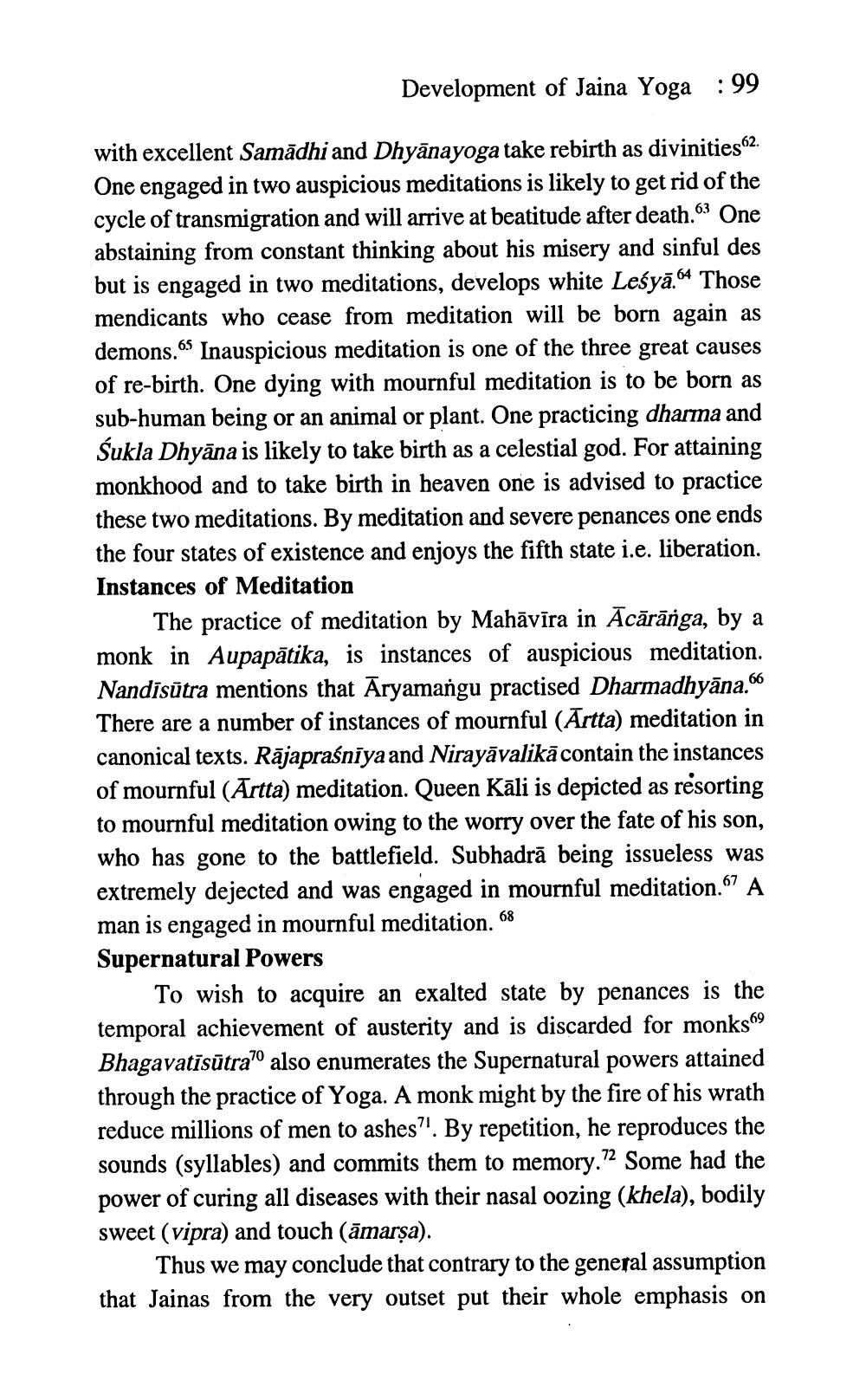________________
Development of Jaina Yoga : 99
with excellent Samādhi and Dhyānayoga take rebirth as divinities62. One engaged in two auspicious meditations is likely to get rid of the cycle of transmigration and will arrive at beatitude after death.63 One abstaining from constant thinking about his misery and sinful des but is engaged in two meditations, develops white Leśyā.64 Those mendicants who cease from meditation will be born again as demons.oS Inauspicious meditation is one of the three great causes of re-birth. One dying with mournful meditation is to be born as sub-human being or an animal or plant. One practicing dharma and Sukla Dhyāna is likely to take birth as a celestial god. For attaining monkhood and to take birth in heaven one is advised to practice these two meditations. By meditation and severe penances one ends the four states of existence and enjoys the fifth state i.e. liberation. Instances of Meditation
The practice of meditation by Mahāvīra in Ācārānga, by a monk in Aupapātika, is instances of auspicious meditation. Nandīsūtra mentions that Āryamangu practised Dharmadhyāna.66 There are a number of instances of mournful (Artta) meditation in canonical texts. Rājapraśniya and Nirayāvalikācontain the instances of mournful (Artta) meditation. Queen Kāli is depicted as resorting to mournful meditation owing to the worry over the fate of his son, who has gone to the battlefield. Subhadrā being issueless was extremely dejected and was engaged in mournful meditation. A man is engaged in mournful meditation. 68 Supernatural Powers
To wish to acquire an exalted state by penances is the temporal achievement of austerity and is discarded for monksha Bhagavatīsūtra"o also enumerates the Supernatural powers attained through the practice of Yoga. A monk might by the fire of his wrath reduce millions of men to ashes?!. By repetition, he reproduces the sounds (syllables) and commits them to memory. 2 Some had the power of curing all diseases with their nasal oozing (khela), bodily sweet (vipra) and touch (āmarşa).
Thus we may conclude that contrary to the general assumption that Jainas from the very outset put their whole emphasis on




